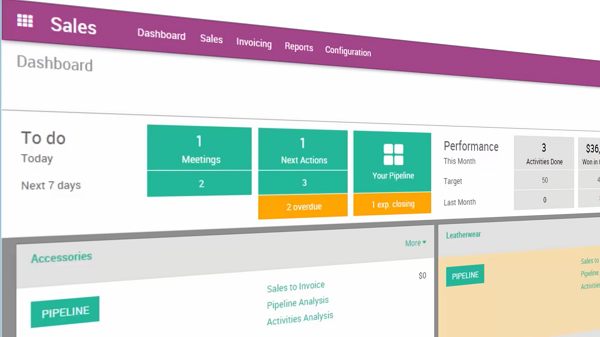When it comes to choosing an ERP system for your Australian business, two names often top the list: Odoo and SAP. Both are powerful solutions, but they cater to different business needs and budgets. Let’s break down the key differences to help you make an informed decision.
Cost Comparison
SAP is known for its enterprise-level pricing, with significantly higher implementation and licensing costs. Odoo offers more flexible pricing options with both free and paid editions, making it particularly attractive for Australian SMEs looking to scale without breaking the bank. For a detailed breakdown of Odoo costs, including implementation, licensing, and ongoing expenses, check out our comprehensive Odoo Cost Guide.
Implementation Time
SAP implementations typically require significant time and business disruption due to their complexity. Odoo implementations generally require less time, though actual duration depends on your specific business needs, customization requirements, and the complexity of your operations. This faster deployment potential means Australian businesses may start seeing ROI sooner.
We are a trusted Australian Odoo Partner dedicated to delivering comprehensive ERP solutions tailored to your business needs.
Customization and Flexibility
When it comes to customization, Odoo stands out with its modular approach. Australian businesses can select exactly which features they need, avoiding unnecessary costs. The system’s open-source nature and extensive marketplace of pre-built modules make it easy to integrate with popular Australian business tools. Key customization features include:
– Modular approach where you only pay for what you need
– Easy integration with popular Australian business tools
– Simple interface for adding custom features
– Large marketplace of pre-built modules
– Flexible API for custom development
SAP, while offering deep customization capabilities, requires specialized developers and longer development cycles, making it less flexible for rapidly changing business needs.
Local Support and Training
Australian businesses benefit from Odoo’s growing network of certified partners across major cities including Sydney, Melbourne, and Brisbane. This local presence ensures businesses receive comprehensive support and training options:
– On-site support when needed
– Training in Australian business hours
– Understanding of local compliance requirements
– Regular local user groups and workshops
– Dedicated local support teams
– Australian-based training facilities
While SAP maintains a strong presence in Australia, their focus on enterprise clients often means smaller businesses receive less personalized support.
Industry Fit
SAP has built its reputation serving large manufacturing operations, complex supply chains, and global enterprises. The system excels in highly regulated industries where deep industry-specific features are crucial. Odoo, on the other hand, has proven particularly effective for:
– Growing SMEs
– Service-based businesses
– Retail operations
– Professional services
– Manufacturing (small to medium scale)
– Distribution companies
– Technology firms
– Healthcare providers
Compliance and Local Requirements
Both systems handle Australian compliance requirements, but Odoo’s modular approach offers distinct advantages for local businesses. The system makes it straightforward to add Australian-specific features such as:
– Single Touch Payroll
– BAS reporting
– GST compliance
– Superannuation management
– Fair Work compliance
– Industry-specific regulations
This flexibility ensures businesses can meet local regulatory requirements without complex customizations.
User Interface and Usability
Australian staff typically find Odoo’s modern, intuitive interface easier to learn and use. The system’s clean design and straightforward navigation reduce training time and help teams become productive quickly. Key usability features include:
– Modern, responsive design
– Mobile-friendly interface
– Intuitive navigation
– Customizable dashboards
– Role-based access control
SAP’s interface, while powerful, is more complex and generally requires more extensive training for users to become proficient.
Scalability
While SAP is renowned for handling massive scale, Odoo has proven its capabilities in supporting growing businesses. The system offers robust scalability features:
– Efficient user management for thousands of users
– Multi-company support
– Flexible deployment options (cloud or on-premise)
– Scalable database architecture
– Performance optimization tools
Making Your Choice
For Australian businesses, Odoo presents an attractive option if you’re looking for a cost-effective solution with faster implementation potential. The system’s flexibility, customization options, and local support network make it particularly suitable for growing SMEs. SAP might be the better choice if you’re a large enterprise with complex global operations, need deep industry-specific features, or have a large IT department to manage extensive customizations.
FAQs
Can Odoo handle the same level of complexity as SAP?
While SAP is known for handling extremely complex operations, Odoo can handle most business needs through its modular approach and customization options. The key difference is that Odoo is more accessible and cost-effective for most Australian businesses, while still providing the core functionality needed for growth and efficiency.
Is Odoo suitable for large enterprises?
Yes, Odoo can effectively serve large enterprises through its scalable architecture and extensive customization options. While SAP is often associated with large enterprises, Odoo has successfully implemented solutions for companies with thousands of users and complex operations.
How does Odoo handle Australian compliance requirements?
Odoo’s modular approach makes it easy to add Australian-specific compliance features. The system supports key requirements like Single Touch Payroll, BAS reporting, and GST compliance through dedicated modules and customizations.
What kind of support is available for Australian businesses?
Australian businesses benefit from a network of certified Odoo partners across major cities, offering local support, training, and implementation services. This includes on-site support, Australian business hours assistance, and regular local user groups.


